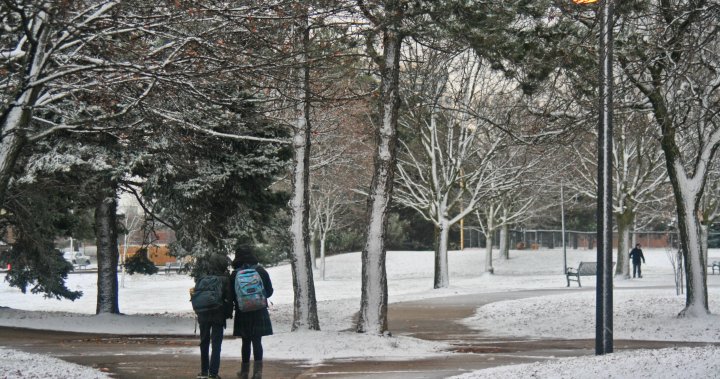Infra
Toronto city council votes to move ahead on proposed bike lanes on Parkside Drive | CBC News

Toronto city council has voted to move one step further on a plan to add new bike lanes at the expense of a car lane on Parkside Drive, even as the provincial government introduced legislation that could tear down bike lanes that disrupt traffic.
City council voted 19-7 on Thursday to endorse the project in principle.
The proposed 1.9-kilometre, two-way cycle track on the west side of Parkside Drive would mean the number of car lanes would be reduced from three to two in the area. The plan is estimated to cost $7.5 million, an amount that could change as the design process is ongoing, according to the committee’s report.
The move comes after the provincial government introduced a bill requiring the city to get permission before building bike lanes over vehicle lanes and demonstrate that they wouldn’t get in the way of traffic.
“I hope the [transportation] minister will look at the data that we collected, because there’s a lot of it. And then again let’s have a conversation on how we can make that road safer,” Toronto Mayor Olivia Chow told reporters on Friday.
In the past decade, there have been nearly 1,500 collisions on Parkside Drive leading to five serious injuries and three deaths in the stretch where the bike lanes are proposed, according to the city’s infrastructure and environment committee’s final report studying the area.
The proposed bike lanes, which will run between Bloor Street W. and Lake Shore Boulevard W., are part of a larger plan to make the area safer. The plan also includes adding intersection safety improvements at Lake Shore Boulevard W. and Bloor Street W., new and updated bus stops, and designated turning lanes at intersections.
The report notes that narrow and missing sidewalks, lack of bikeways, speeding and aggressive driving, are among the concerns the city heard from residents.
But councillors like Stephen Holyday raised concerns about the bike lane potentially contributing to traffic congestion in the area and worsening drivers’ behaviour.
“Throwing in some bike lanes as a creative answer to trying to deal with speeding, which happens all over this city, is unsustainable,” he told city council Thursday.
The committee’s study report said the southbound lane at the Bloor Street W. and Parkside Drive intersection could become “a potential bottleneck,” according to early modelling, forecasting how the project would affect traffic.
Coun. Gord Perks, who represents Parkdale-High Park, said the bike lanes are important since they act as barriers between fast-moving traffic and pedestrians.
“We have put in extra traffic lights, we have put parking on the east side of the street, we have made changes to the intersections, we’ve added a bus stop. We have done every practical measure that you can do without actually reconfiguring the street,” Perks told the city council.
With the province already working to take down bike lanes throughout Bloor Street, Yonge Street and University Avenue, it’s unclear whether the proposed lane on Parkside Drive will come into fruition.
“Well, just because the pemier can doesn’t mean the premier should,” Deputy Mayor Jennifer McKelvie told reporters Thursday.
“I have never seen a more compelling case for bike lanes in the city of Toronto and for safety improvements for pedestrians, motorists and cyclists.”
On Thursday, city council voted on a motion to formally oppose Premier Doug Ford’s plans, following a report showing it would cost at least $48 million to remove bike lanes. Council also voted in favour of a second part of the motion saying the city wouldn’t cover costs associated with the potential removal.
Asked about the proposed bike lane on Parkside Drive, a spokesperson for Ontario’s transportation minister said, “Our position is clear. We support a common sense approach when it comes to bike lanes — which does not include removing a lane of traffic in the most congested city in North America.”
Spokesperson Dakota Brasier said in an emailed statement, “We will be reviewing the city’s plan, as well as all other information from municipalities regarding bike lanes that have been installed in the past five years.










